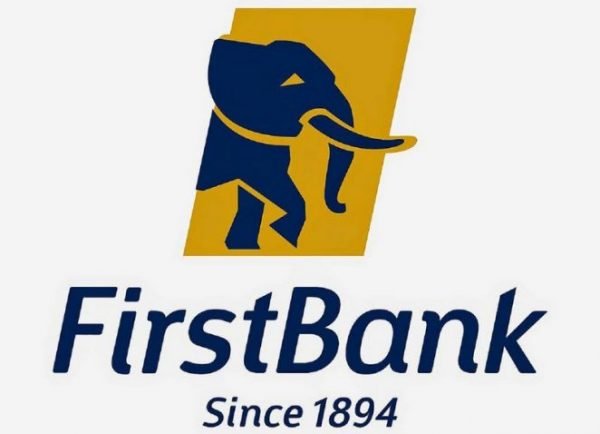Economy
Why Cost of Foodstuff is High in the Market- Dealers

By Joseph Amah, Abuja
Traders under the aegis of Amalgamated Union of Foodstuff and Cattle Dealers of Nigeria (AUFCDN) have said the current escalating cost of foodstuff in Nigeria can be traced to the cost of production and transportation.
According to figures released by the National Bureau of Statistics (NBS), Nigeria’s food inflation as at March 2022 was 17.
20 per cent. This figure many Nigerians have said is under statement going by the high cost of food in the market exacerbated by the recent fuel scarcity that rocked the nation.National President of the union, Dr. Muhammad Tahir Ibrahim, who spoke with The Guardian in an interview in his office in Abuja over the weekend, said it is wrong to blame traders for the rising cost of food in Nigeria.
According to him, “Let us take cattle for instance, do you know we have fewer cows in Nigeria now because of the activities of Boko haram and bandits rustling cows in states like Sokoto, Kebbi, Kaduna, Kano and Zamfara. I can tell you most of these cows you see in Nigeria are imported from Chad, Niger and Cameroon. “You can imagine a cow that we sold before for N150,000, is now selling for more than N200,000, in the north, if you go down south, the price is something else. “He said apart from the cost of the foreign exchange to import the cows, cost of transportation has gone high over the roof.
In his words, “Before now you can transport a trailer load of cows from the north to the south for just between N150,000 and N200,000. Today as I am talking to you, it cost over one million to charter trailer that will carry your cow from the north to the south. “The trailer owners will tell you the cost of diesel has gone up, the roads are bad and the cost of spare parts are also high.
“As a rice farmer, in March this year I bought a bag of urea fertiliser for N15,000, just yesterday (Thursday May 5 2022), I bought the same bag of urea fertiliser for N22,000. If you go to buy other agrochemicals, the cost is also jumping higher and higher. “So what do we do? You cannot after spending so much to buy the goods or to produce, you take them to the market and sell it cheap, you must recover your cost and of course add something on top for your efforts.
“Dr. Ibrahim also complained of the incidences of multiple taxation which he said is also contributing to the high cost of food in the market. He said there are so many security as well as illegal revenue agents on the road exporting money from traders as they move their goods from one state to the other.
“We are not saying we will not pay tax, but let it be at the point of loading and at the point of discharging the goods. Why should state revenue officials compel us to pay tax for just passing through their state on a federal highway? Why should security agents be demanding money from us when we are not carrying contraband goods?
These are the problems and we are calling on both federal and state governments to come to our aid by stopping all those illegal charges on the road and to make the rail work, especially between the north and south. If we are moving our goods by rail it will be far cheaper for us and that will drive down prices.”
Economy
CBN Takes Steps to Strengthen Banking Sector, Issues Routine Transitional Guidance

The Central Bank of Nigeria (CBN), has introduced time-bound measures for some banks still completing their transition from the temporary regulatory support provided in response to the economic impact of the COVID-19 pandemic.
According to a statement issued by Mrs Hakama Sidi-Ali, , CBN’s Acting Director, Corporate Communications Department , this is part of its ongoing efforts to strengthen the banking system.
Sidi-Ali said that the step was part of the CBN’s broader, sequenced strategy to implement the
recapitalisation programme announced in 2023.
She said that the programme, designed to align
with Nigeria’s long-term growth ambitions, had already led to significant capital inflows and balance sheet strengthening across the sector.
“Most banks have either completed or are on track to meet the new capital requirements well before the final implementation deadline of March 31, 2026.
“The measures apply only to a limited number of banks. These include temporary restrictions on capital distributions, such as dividends and bonuses to support retention of internally generated funds and bolster capital adequacy.
“All affected banks have been formally notified and remain under close supervisory engagement ” she said.
She said that to support a smooth transition, the CBN had allowed limited, time-bound flexibility
within the capital framework, consistent with international regulatory norms.
“Nigeria generally maintains Risk-Based Capital requirements that are significantly more stringent than the global Basel III minimums.
“These adjustments reflect a well-established supervisory process consistent with global norms. Regulators in the U.S., Europe, and other major markets have implemented similar transitional measures as part of post-crisis reform efforts.
“The CBN remains fully committed to continuous engagement with stakeholders throughout this period via the Bankers’ Committee, the Body of Bank CEOs, and other industry forums,” she said.
She said that the goal to ensure a transparent, Nigeria’s banking sector remained fundamentally strong.
According to her, these measures are neither
unusual nor cause for concern.
She said that they were a continuation of the orderly and deliberate implementation of reforms already underway.
She said that the CBN would continue to take all
necessary actions to safeguard the sector’s stability and ensure a robust, resilient financial ecosystem that supports sustainable economic growth. (NAN)
Economy
Cybercrime: First Bank Invests N15bn to Protect Systems From hackers in 5 months –CEO

First Bank HoldCo Plc says it has spent more than N15 billion to protect its systems against criminals between January and June.
Olusegun Alebiosu, the Chief Executive Officer (CEO), First Bank HoldCo Plc, said this in an interview in Abuja on Wednesday.
Alebiosu, who spoke on the sideline of a two-day National Seminar on Banking and Allied Matters for Judges, said the Bank had spent three N3 billion in June to protect its systems.
He said the bank had the best cyber security framework in the country, hence the investment.
The CEO who was speaking on the increasing number of attacks by cybercriminals, especially on banks’ systems, assured First Bank customers of the safety of their monies.
Alebiosu frowned at the rate at which some citizens were involved in cybercrimes, saying the country must move fast to curb their excesses.
”No customer would lose their money in First Bank unjustly.
”If their money is missing in First Bank, First Bank will pay back.
”Before I joined First Bank, I have an account with First Bank.
”One of the reasons why I had an account with First Bank was, I said to myself, if my money is missing, it is the only bank I know I will collect my money without any excuses, ” he said.
Reacting to some customers’ complaints on the delay by the bank to handle cases of fraudulent transactions, Alebiosu said the bank must conduct investigations involving different stakeholders.
The CEO said the delay was caused by the collaboration between the stakeholders involving security agencies and banks where the money was transferred to determine the realities about the cases.
He urged customers to tread carefully in handling and releasing their financial information.
”Customers themselves, most times, also compromise their own security details; I have seen a lot of people that give their cards to somebody to help them withdraw money from their ATM.
”They compromise their password so, when something happens and you say, my money disappeared, you forget the day you gave your card to someone else and they can use that to transfer your money.
”Some people compromise even their own ID on the system carelessly, some give their Bank Verification Number (BVN) and they use it against them.
”Now, why does it take time for the bank to react, everything you give to the bank, the bank has to investigate it.
”The money might have gone to other banks so, you start tracking from other banks but
Sometimes customers are impatient,” he said.
On frauds allegedly perpetrated by staff, he said the bank had internal employee fraud software, that monitors activities of employees on the system.
According to him, if you know how many of our staff we sack on a monthly basis, you won’t believe me.
”So if there are triggers, people will be involved. It is for us to run faster than them, and see how we can help to stop these kinds of things in our system but wherever we see it, we deal with it decisively, ” Alebiosu said.
He said that various stakeholders including the banks, law enforcement agencies and the judiciary had a role to play in curbing cybercrimes. (NAN)
Economy
GTCO Begins Deduction of USSD Fee From Airtime Balance

Guaranty Trust Holding Company (GTCO), says it will begin the deduction of Unstructured Supplementary Service Data (USSD fee from the airtime balance of its customers from June 18.
The bank in a message to its customers on Wednesday, said the N6.98 fee would no longer be deducted from customers’ bank account balance.
”Dear Customer, please be informed that effective June, 18, the N6.
98 USSD fee will be deducted from your airtime balance, no longer from your bank account”.The Nigerian Communications Commission (NCC) had directed deposit money banks (DMBs) to stop deducting charges for USSD transactions directly from customers’ accounts. (NAN)


















